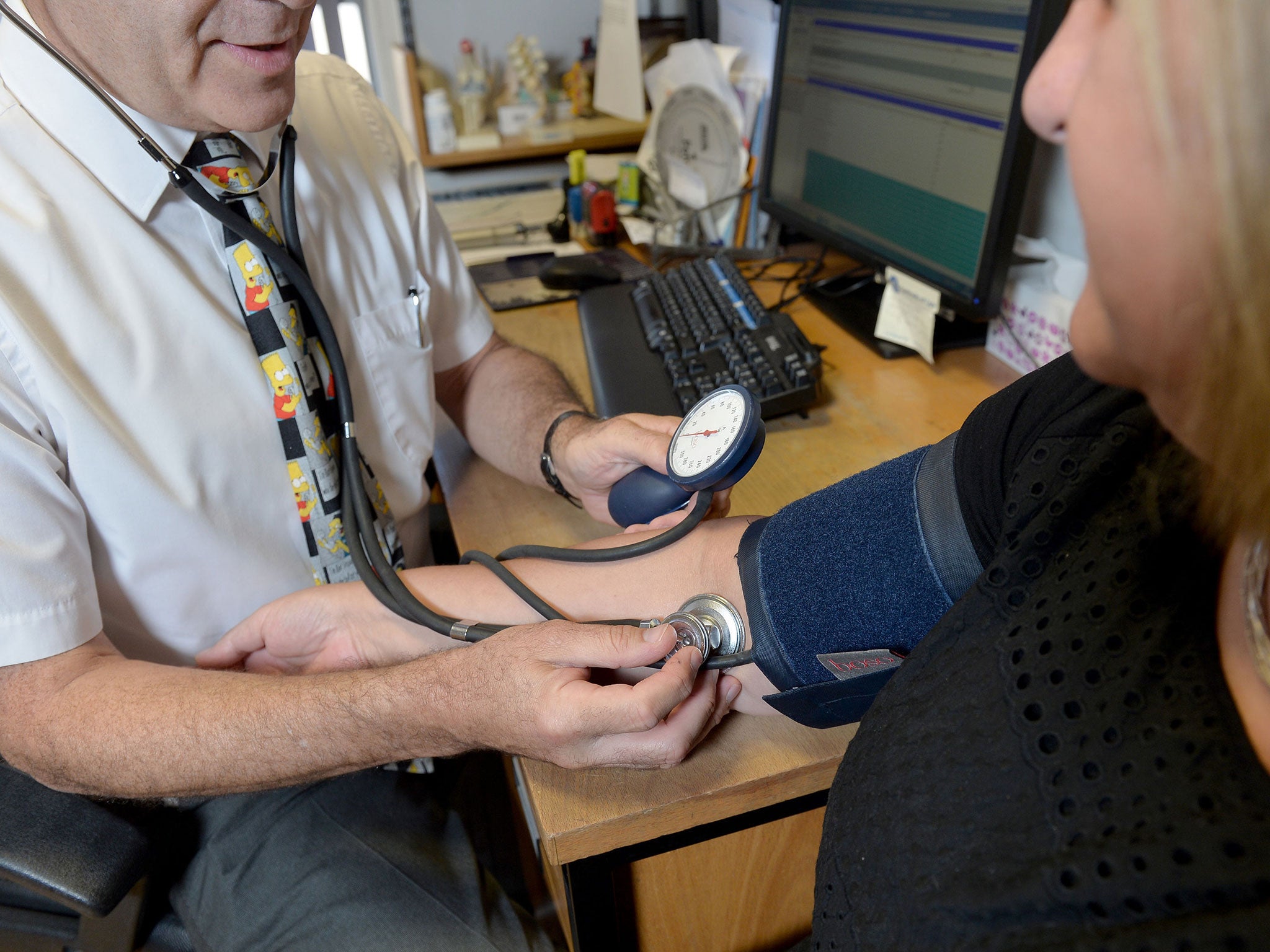Shortage of GPs set to worsen with number of doctors planning to leave profession at 'all-time high'
Almost two in five are likely to quit direct patient care within five years

Your support helps us to tell the story
From reproductive rights to climate change to Big Tech, The Independent is on the ground when the story is developing. Whether it's investigating the financials of Elon Musk's pro-Trump PAC or producing our latest documentary, 'The A Word', which shines a light on the American women fighting for reproductive rights, we know how important it is to parse out the facts from the messaging.
At such a critical moment in US history, we need reporters on the ground. Your donation allows us to keep sending journalists to speak to both sides of the story.
The Independent is trusted by Americans across the entire political spectrum. And unlike many other quality news outlets, we choose not to lock Americans out of our reporting and analysis with paywalls. We believe quality journalism should be available to everyone, paid for by those who can afford it.
Your support makes all the difference.The shortage in GPs is set to worsen as the number who plan to leave the profession in the next five years is at an “all-time high”, a report warns.
A national survey of family doctors found that almost two in five are likely to quit direct patient care within five years.
Researchers said the findings, which are the highest since the National GP Worklife Survey began, were “particularly worrying” due to the possible implications for recruitment, retention and patient care.
The figures come after it emerged that more than a million patients have been forced to look for a new GP in the past five years after their surgery closed or merged.
Pulse magazine found that between 2013 and 2017 a total of 445 GP practices shut their doors due to closures or mergers, affecting more than a million patients.
Recruitment, retention and funding issues were cited as reasons behind some of the closures.
The latest survey, published by experts at the University of Manchester, found that a large proportion of younger GPs expect to quit or change roles in the next five years.
Among GPs under 50, 13 per cent said there was a considerable or high likelihood of leaving direct patient care within five years.
Among GPs of all ages, 39 per cent of respondents indicated that there was a considerable or high likelihood that they would quit within five years – up from 35 per cent in 2015.
It is the ninth survey of GPs in England which covers all aspects of a GP’s working life, including satisfaction with various aspects of their work, sources of pressure at work and their future working intentions.
The latest poll, which included data from almost 2,000 GPs, found overall job satisfaction increased slightly between 2015 and 2017.
But the researchers said levels of satisfaction in 2015 were the lowest since 2001.
Respondents reported most stress with “increasing workloads”, “having insufficient time to do the job justice”, “paperwork” and “changes to meet requirements from external bodies”.
Nine out of 10 GPs reported experiencing considerable or high pressure from “increasing workloads”.
Professor Kath Checkland, who led the study, said: “The all-time high figure of 39 per cent of GPs who say they intend to quit within five years is particularly worrying in terms of the possible implications it might have on recruitment, retention and patient care.”
Professor Helen Stokes-Lampard, chairwoman of the Royal College of GPs, said: “It’s incredibly worrying to hear that so many GPs are thinking about leaving the profession within the next five years, but it certainly isn’t surprising, given the intense pressures family doctors are facing.
“Pressures in general practice have reached an all-time high; our workload has escalated by at least 16 per cent over the past seven years, but the share of the NHS budget general practice receives is less than it was a decade ago. GP numbers are actually falling, and many hard-working GPs are simply burnt-out and exhausted.”
A Department for Health and Social Care spokeswoman said: “GPs are a vital part of the NHS and we recognise the everyday pressures they face – that’s why we’re increasing investment by £2.4bn a year by 2021 and recruiting 5,000 new doctors into general practice.”
Agencies contributed to this report
Join our commenting forum
Join thought-provoking conversations, follow other Independent readers and see their replies
Comments